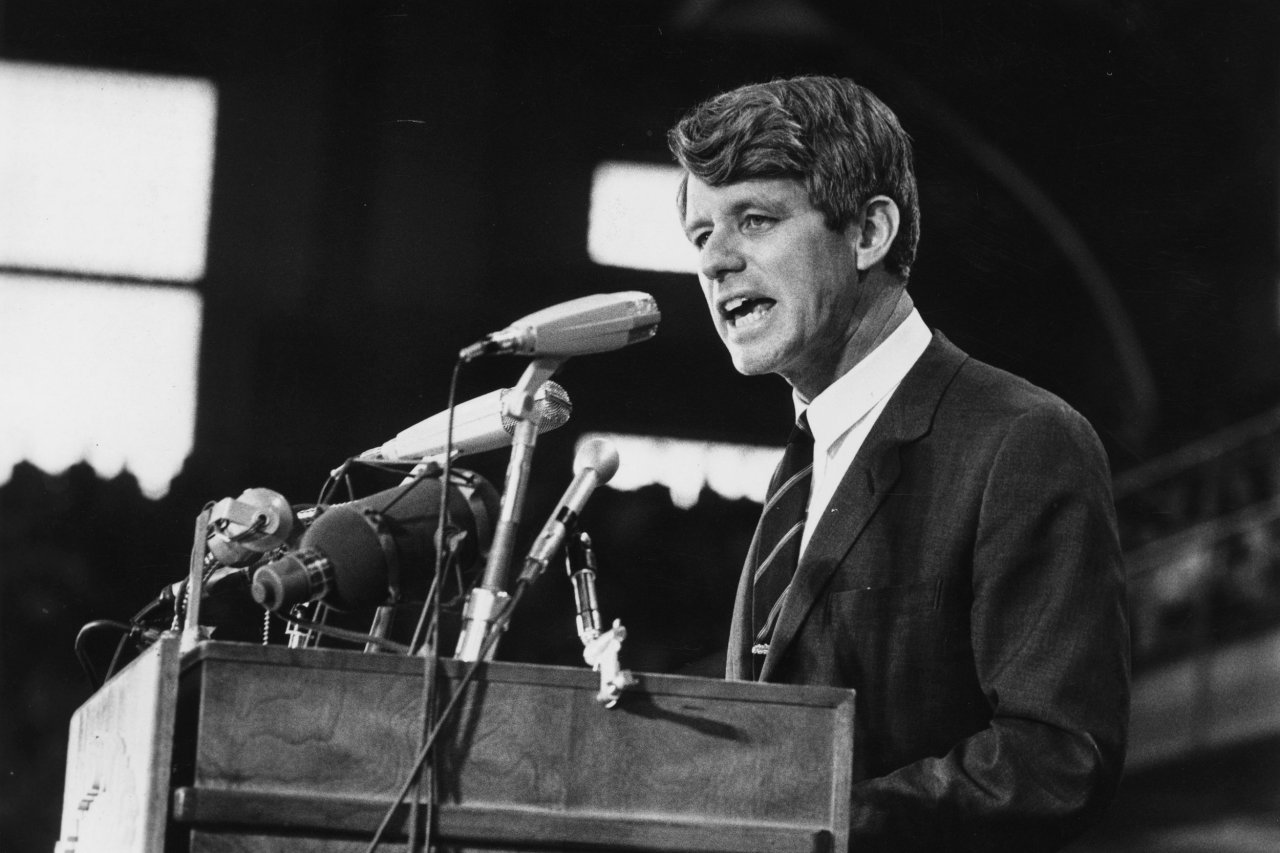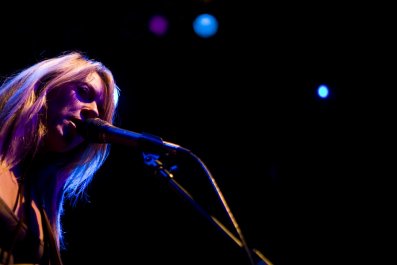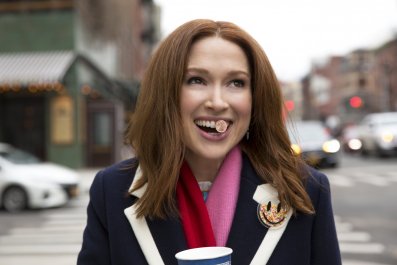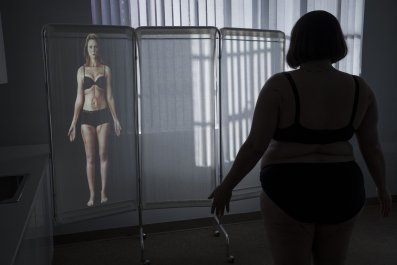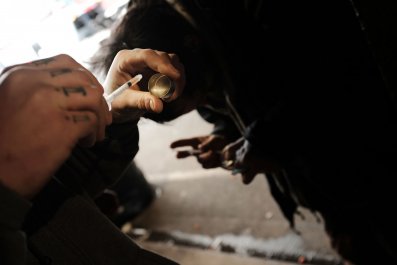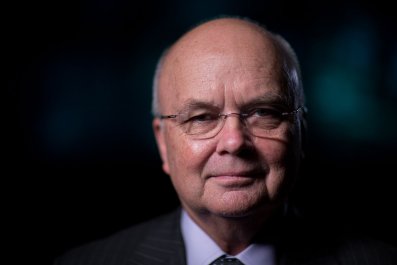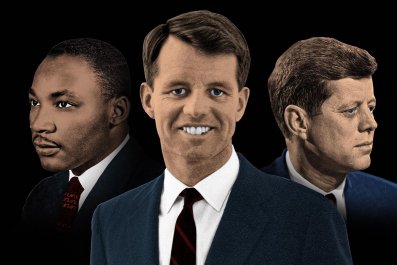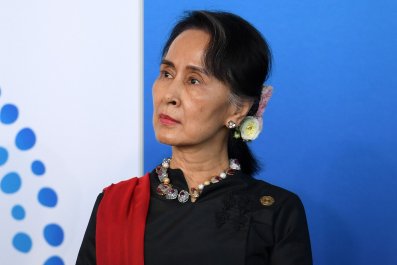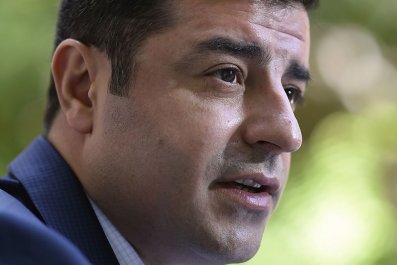Peter Goldman was at home in New York, watching the results roll in from the California presidential primary. It was early in the morning of June 5, 1968, and for a fleeting instant, Robert F. Kennedy seemed poised to capture the Democratic nomination and perhaps follow his slain brother's footsteps into the White House.
NBC went off the air, but Goldman, a 35-year-old national affairs writer for Newsweek, stayed awake, flipping through other news channels. Suddenly, he saw footage of a shaken Steve Smith, Kennedy's brother-in-law and campaign manager, ascending to the podium at Los Angeles's Ambassador Hotel "and announcing that something horrible had happened."
As Goldman would observe in a subsequent Newsweek cover story, there was a sense of "sickening familiarity" in the night's sequence of events, coming as it did just months after Martin Luther King Jr.'s assassination: "the crack of the gun, the crumpling body, the screams, the kaleidoscopic pandemonium."
Kennedy had been gunned down, shot at close range by 24-year-old Sirhan Sirhan as he was exiting through the hotel kitchen. The senator was rushed to the hospital for emergency surgery, but as at Parkland Hospital in Dallas five years prior, when his brother was on the operating table, any expectation of recovery was short-lived. On June 6, Bobby Kennedy was declared dead.
"I was kind of the assassination editor back in the '60s," says Goldman, who is now 85 and has retired from journalism to write crime fiction. "I did the Jack [Kennedy] cover. I did the MLK cover. I did an inside piece on Malcolm X, an inside piece on Medgar Evers..." A prolific chronicler of a remarkably tumultuous era, he would write more than 120 cover stories between 1962 and 1988. Somebody, it seems, had to bear witness to a nation's unraveling.
But, briefly, Goldman saw a man who might stitch it back together. "Bobby had an extraordinary magnetism, and it was the reverse of what we usually think of as magnetism in politics. It was a kind of counter-charisma. There was sadness in his eyes. I think he ended his life still grieving for Jack." The journalist sensed that RFK may have anticipated his own demise. On a plane between campaign stops, there was a small birthday celebration for a member of RFK's staff that included balloons. When one of them popped loudly, "Bobby cringed and looked terrified," Goldman recalls. "I think he knew a gun was waiting for him somewhere."
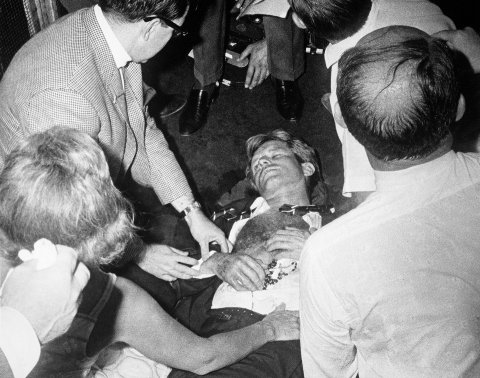
Understandably, then, Kennedy was an uneasy candidate. Goldman was briefly on the road covering RFK during the early primaries. He remembers the candidate's hands shaking when he was speaking in public. "He just carried this wounded, vulnerable look about him—to the point where you just wanted to put your arms around him and say, 'Bobby, it's gonna be OK.'"
Goldman does recall one moment when the candidate visibly relaxed. At a stop in Indianapolis, Kennedy encountered a throng of young children outside a day care center. "The change in his demeanor was, to me, remarkable," says Goldman. "It was the only time I saw Bobby comfortable." One kid, apparently disoriented by the flesh-and-blood materialization of a recognizable celebrity, approached and asked, "How do you get out of the TV?" Kennedy smiled but did not laugh at or mock the child.
Kennedy died on a Thursday morning, and Goldman had finished most of the story by Friday, using the reporting of staffers stationed around the country, who filed interviews and notes around the clock for two days. He wanted to end the story on RFK's funeral on Saturday, which he watched at work that morning. His editor took a bottle of bourbon from the desk drawer. "The two of us were sitting there pretty near tears, which is not what journalists are supposed to be doing," he says.
Goldman argues that the events of 1968 indirectly led to the extreme animosity between liberals and conservatives today. "Some of the fissures that were opening in the '60s widened the division between the two parties, and the division on a lot of social and cultural issues," he says. Trump, knowingly or not, has directly invoked Nixon's '68 strategy with references to a "silent majority" of resentful, white voters. Freed from any obligation to impartiality (a quaint journalistic expectation of the past), Goldman speaks plainly about the 45th president. "I've lived under one-third of American presidents [Herbert Hoover only when Goldman was an infant]. I'm an old dude. And this is the first one who kind of scares me. He has no idea what he's doing. What he's substituting for expertise, it's chaos."
Half a century later, Goldman can also confess to some political partiality during his career. "I was very drawn to Bobby—as was the entire traveling press corps," he says. "It was the most remarkable thing I've ever seen, the flying love affair on that plane." When he died, "I was sadder than I would have been about any other candidate."



